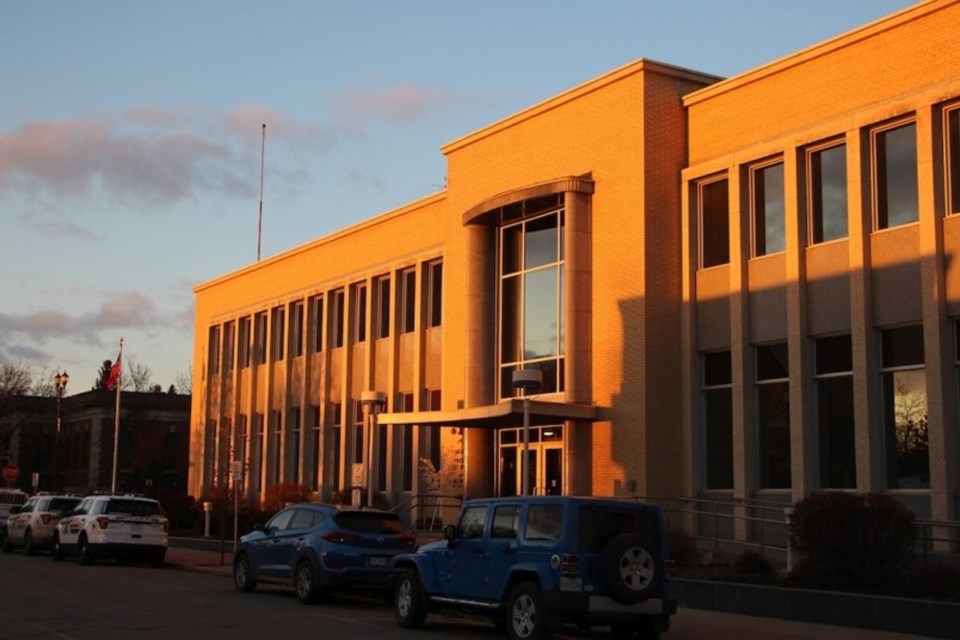YORKTON - The workload to keep up with demands on the Public Works Department to carry out intended preventative maintenance on the City’s water distribution network and the sanitary sewer collection system, is becoming ever greater.
And something needs to be done to help alleviate the issue, offered Trent Mandzuk – Director of Public Works with the city at the regular meeting of Council Monday.
Much of the pressure comes from an increasing need to respond to system breaks.
“In 2022, the water and sewer division spent 56 per cent of its time (140 working days) repairing water main breaks and service leaks,” noted Mandzuk’s report to Council. “The combined total of annual water main breaks and service leaks has climbed from 21 in 2015 to 70 in 2022 (233 per cent increase).” In greater detail issues include residential service connection leaks which have increased 450 per cent in the past seven years.
Response time to repair leaks/breaks is increasing as multiple leaks/breaks per week (are becoming common-place), said Mandzuk. The longer a water main break leaks, the more costly it is to repair.
More staff could help, suggested Mandzuk whose report noted The Public Works Department included a funding increase in the 2023 operational budget for the purpose of adding additional resources to the water and sewer division. During budget discussions Council was not prepared to add additional staff or equipment resources but approved increases under the provision funds could be used for contracted services to compliment city crews when necessary.
With the funding increases approved in the 2023 operational budget the department could hire 3 full-time staff.
Adding three permanent staff will help provide adequate coverage during peak season workloads, detailed the report.
Adding staff is part of a broader department plan.
Once the three staff are properly trained our intent is to move in the direction of having two 6 person crews within the water and sewer division. One will be designated as “reactive” and the other will be intended to carry out “planned” operations, detailed the report. Crews will also alternate between reactive and planned operations to ensure all employees are trained properly and become proficient in both areas.
But staff are not a complete answer.
With the dramatic increase in water main breaks, service leaks and sanitary sewer main failures the challenge of keeping pace with failing infrastructure is only going to become more difficult. Hiring three staff will do nothing to address current rates of failure in distribution system and collection networks, said Mandzuk’s report.
More money is required.
“Until we start developing considerably more aggressive, long-term underground infrastructure replacement programs, undesirable increases will be seen in the following areas: reactive repair costs, damage to residential property, damage to city infrastructure, service interruptions to water and sewer (including sewer back-ups in homes and dirty water complaints), more frequent drinking water advisories and longer periods that advisories will remain in effect. Failure to provide consistent and adequate increases to the City’s infrastructure replacement programs only results in paying higher repair costs that could be better spent on renewal programs before failures happen,” suggested the report.
“For every year that programs remain status quo, following year budgets need to make up the difference; making it increasingly more difficult and unfair for future generations to carry the burden. Future generations will look at this generation with greater disappointment than we have to our predecessors in regards to negligence in ensuring programs and funding are in place for the sustainability and viability of their community.”
It was noted that the Annual Main Replacement Budget is $1 million, so a five per cent increase on that $1 million is only $50, which would translate to only 10 metres of reconstruction.
Ultimately, it was the recommendation that Council authorize administration to proceed with adding three full-time unionized positions to the water and sewer division that can be funded with the existing 2023 budget increases to the water main break accounts.






